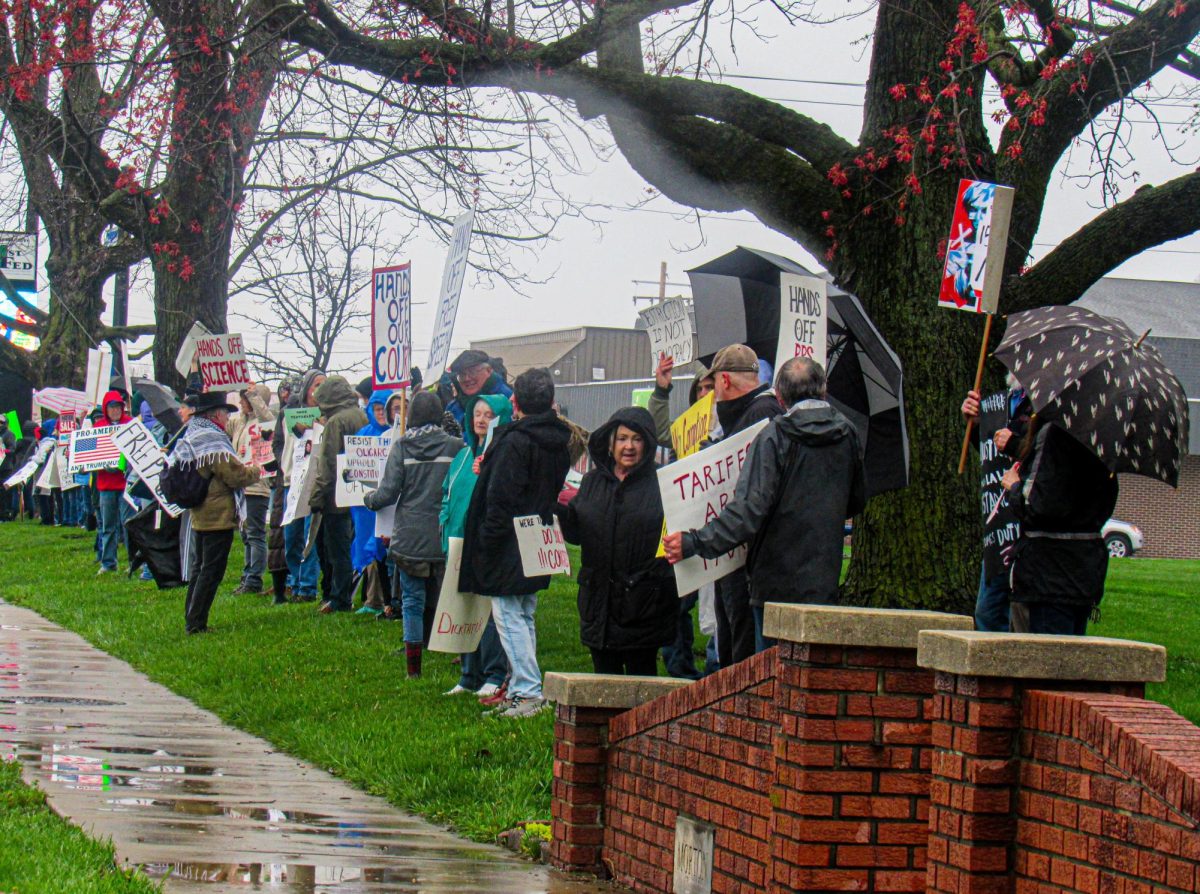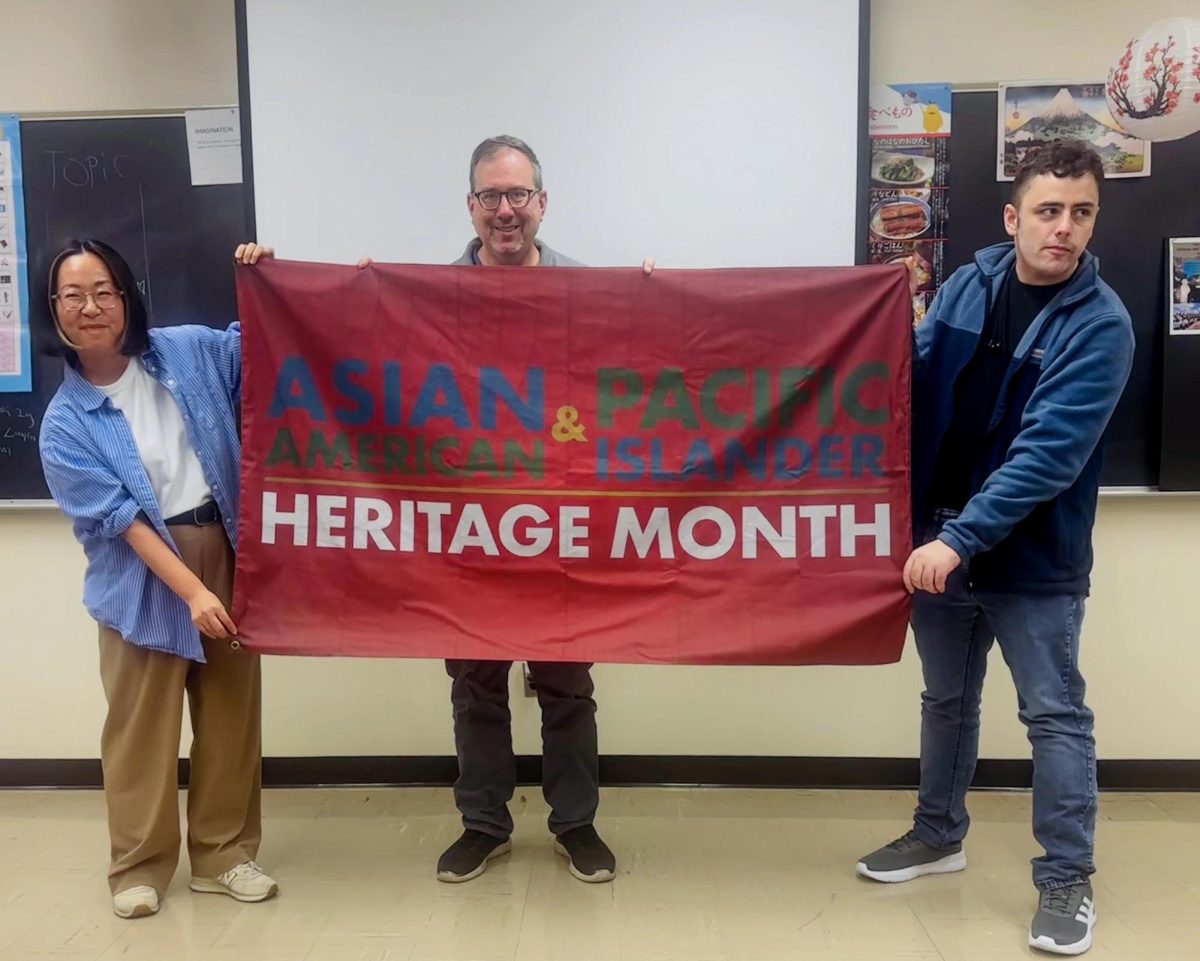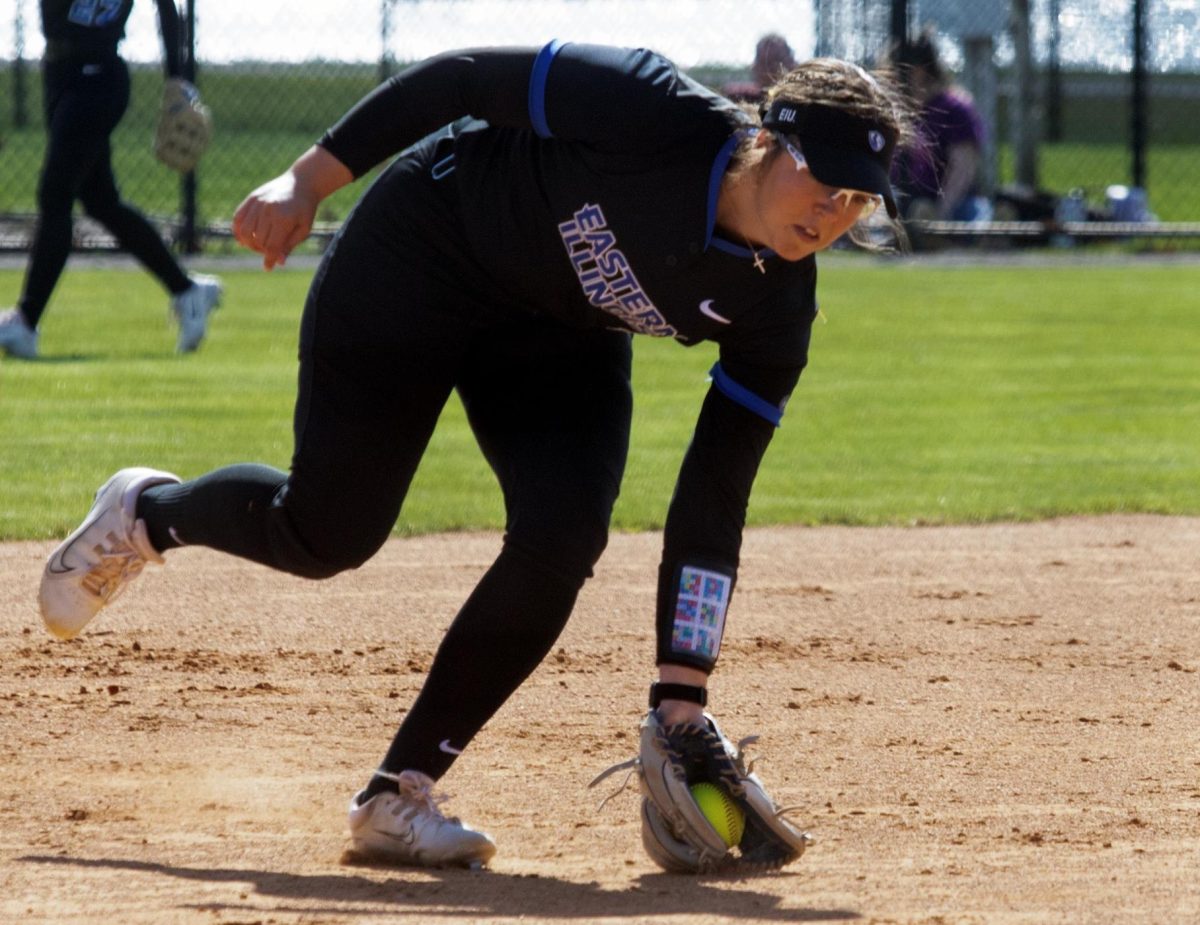Students finding common ground despite political differences
March 7, 2019
Grant Manning’s friends at Eastern almost never agree with him, at least politically.
Manning rarely dissented from the political outlook of his friends at Metamora high school, most of whom embraced views in line with his own.
Then, that all changed.
The junior political science major considers the majority of his views to be conservative, but on economics and criminal justice, two areas where he has found common cause with liberals, some Republicans, he said, might mistake him for a socialist.
“And, so, I kind of got this impression that, OK, everybody who doesn’t think like me is wrong, just because it seems like everybody thinks like me,” Manning said.
“But, when I got here, you know, people have all different opinions and, you know, they’ve read different books, they have different perspectives, have different life experiences. So it was kind of an awakening moment for me to see people with different beliefs, for different reasons.”
Becoming friends with those on the other end of the political divide can seem, in the minds of some Americans, tantamount to betrayal of their party.
Others think they can overlook the differences, certain that their friendships transcend opposing visions for America’s future.
They find it possible to engage in bipartisan interests, deeming it only natural to watch the Super Bowl on the couch together, attend parties and even talk politics.
With friendships, 80 percent of Republicans and 75 percent of Democrats, as per Pew Research, have one or more friends affiliated with the other party.
College-aged political enthusiasts often exude a sense of pride and passion in what they perceive to be the unvarnished truth, views that could needle those who vehemently disagree with them.
But Manning said he feels his friendships could soar to new heights, with a left wing and a right wing flapping in tandem.
The political tensions can be mended since, as Manning put it, his friends arrived at their viewpoints with a sense of wellbeing in their hearts.
He said he feels no hostility toward his liberal friends.
“It’s always a good faith argument, you know, because at the end of the day, you have to recognize that the person you are arguing with, even though they drastically disagree with you, they have the same goal at the end of the day,” Manning said.
“And that goal is to make our country the best possible place it can be.”
A good many Americans have an opinion about the current occupant in the White House and, even still, spend weekends with people who feel quite differently.
Liberals find president Trump to be distasteful, a feckless leader who, from the moment he took the Oval office, has shown himself to be both dishonest and heard-hearted.
Conservatives, by contrast, look to the next two years under Trump with optimism.
Special education major Molly Peart recalled a debate she had with a friend of hers back home in Joliet.
When the friend lauded Trump’s ban on transgender troops, she disagreed.
In an attempt at defending her countering position, and perhaps convince her friend, she questioned his prejudicial remarks.
“He was saying that was right, and I said, ‘Nope, that’s not right,’” Peart said. “I said I think everyone should be treated equal, and anyone who wants to fight for their country should.”
Luis Paniagua, a self-identified liberal, said he would not terminate a friendship with another student over staunch political differences.
Instead they would talk it out, even if a consensus appeared out of reach.
“It would be more just like a debate,” Paniagua said. “We would not stop being friends.”
Tom O’Connor can be reached at 581-2812 or troconnor@eiu.edu.






![[THUMBNAIL EDITION] (From left to right) Head football coach Chris Wilkerson works with his son student assistant coach Peyton Wilkerson at football practice at O'Brien Field on the Eastern Illinois University campus on Thursday.](https://www.dailyeasternnews.com/wp-content/uploads/2025/04/FB_25_O-1-e1744234837107-1200x596.jpg)




![[Thumbnail Edition] Charleston High School sophomore Railyn Cox pitches the ball during Charleston's 8-7 win over Flora High School on Monday, March 31.](https://www.dailyeasternnews.com/wp-content/uploads/2025/04/SBHS_01_O-1-e1743982413843-1200x1023.jpg)



![[Thumbnail Edition] Senior Foward Macy McGlone, getsw the ball and gets the point during the first half of the game aginst Western Illinois University,, Eastern Illinois University Lost to Western Illinois University Thursday March 6 20205, 78-75 EIU lost making it the end of their season](https://www.dailyeasternnews.com/wp-content/uploads/2025/03/WBB_OVC_03_O-1-e1743361637111-1200x614.jpg)




















![[Thumbnail Edition] Eastern Illinois softball senior infielder Briana Gonzalez resetting in the batter's box after a pitch at Williams Field during Eastern’s first game against Southeast Missouri State as Eastern split the games as Eastern lost the first game 3-0 and won the second 8-5 on March 28.](https://www.dailyeasternnews.com/wp-content/uploads/2025/04/SBSEMO_11_O-1-e1743993806746-1200x692.jpg)

















![The Weeklings lead guitarist John Merjave [Left] and guitarist Bob Burger [Right] perform "I Am the Walrus" at The Weeklings Beatles Bash concert in the Dvorak Concert Hall on Saturday.](https://www.dailyeasternnews.com/wp-content/uploads/2025/03/WL_01_O-1200x900.jpg)














